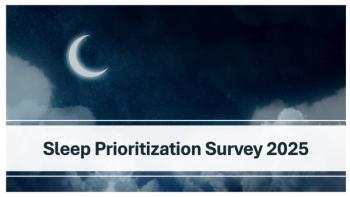
Children with Insufficient Sleep Have Neurocognitive Differences That Correlate with Mental Health Risk
The research findings confirm that nine hours of sleep is an important benchmark for elementary-age children.
The research findings confirm that nine hours of sleep is an important benchmark for elementary-age children.
New evidence suggests children who do not get sufficient sleep have neurocognitive differences that could contribute to mental health disorders later in life.
The study,
The study was conducted by investigators from the University of Maryland School of Medicine and the National Institutes of Health (NIH). They explained that the American Academy of Pediatrics recommends children between the ages of 6 and 12 get at least 9 hours of sleep each night. Research has consistently shown that many children do not routinely meet this benchmark.
Considering the important neurocognitive development that takes place between ages 6 and 12, the investigators wanted to see whether a lack of sleep would translate into noticeable neurocognitive differences. The answer they found was “yes.”
The study’s enrollees were divided into two cohorts, based on whether or not they got at least 9 hours of sleep. The patients were examined with magnetic resonance imaging (MRI), their medical records were assessed, and they and their parents were asked to complete surveys. The same assessments were performed wo years later.
“We found that children who had insufficient sleep, less than nine hours per night, at the beginning of the study had less grey matter or smaller volume in certain areas of the brain responsible for attention, memory and inhibition control compared to those with healthy sleep habits,” Wang said, in a press release. “These differences persisted after two years, a concerning finding that suggests long term harm for those who do not get enough sleep.”
Wang is a professor of diagnostic radiology and nuclear medicine at the University of Maryland.
The finding could have long-term implications for the children, because the differences Wang and colleagues identified are associated with mental health problems such as depression, anxiety and impulsive behaviors.
The authors also found that the cohort of children with sufficient sleep gradually decreased their amount of sleep as they grew older, a natural shift for children as they become teenagers. However, those with insufficient sleep as young children had little change in their sleep habits as they got older.
The patients in this study were part of the Adolescent Brain Cognitive Development (ABCD) study, a long-term effort by the NIH to understand how children’s brains develop over time and how outside factors affect that development.
Wang said one question that will need to be answered is how length of sleep compares to other factors in terms of its contribution to neurocognitive development.
“We tried to match the two groups (sufficient sleep and insufficient sleep) as closely as possible to help us more fully understand the long-term impact on too little sleep on the pre-adolescent brain,” he said. “Additional studies are needed to confirm our finding and to see whether any interventions can improve sleep habits and reverse the neurological deficits.”
In the meantime, he said these data affirm the importance of sleep and validate the sleep recommendations of the American Academy of Pediatrics.
Newsletter
Get the latest industry news, event updates, and more from Managed healthcare Executive.























